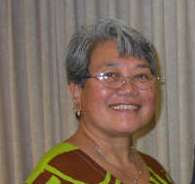Ua lehulehu a manomano ka 'ikena a ka Hawai'i.
Great and numerous is the knowledge of the Hawaiians. Puku'i #2814
 Our ancestors, without the aid of modern technology, were able to unravel the mysteries of nature to create practices and traditions to create a better life. Conservation, recycling, farming practices, and responsible water management were a few of the things they imbedded into our culture.
Our ancestors, without the aid of modern technology, were able to unravel the mysteries of nature to create practices and traditions to create a better life. Conservation, recycling, farming practices, and responsible water management were a few of the things they imbedded into our culture.
The question is when did we lose this wisdom and resorted to actions which were harmful to our environment and our society as a people and a nation?
The second question is when will we be able to move forward on the foundation created by our kupuna to create a better life for the future? What will it take to affect positive change? It will definitely not be a a government movement but the work of individuals working cooperatively to make change happen. For those of us who are kupuna, our job is to raise our children and grandchildren well...knowing kuleana...being respectful...working hard for the common good. For the young ones, now is the time to listen to the stories of the kupuna that teach the values of our people. For all, we have to dream that dream of a better Hawai'i Nei. And then, work toward it!






